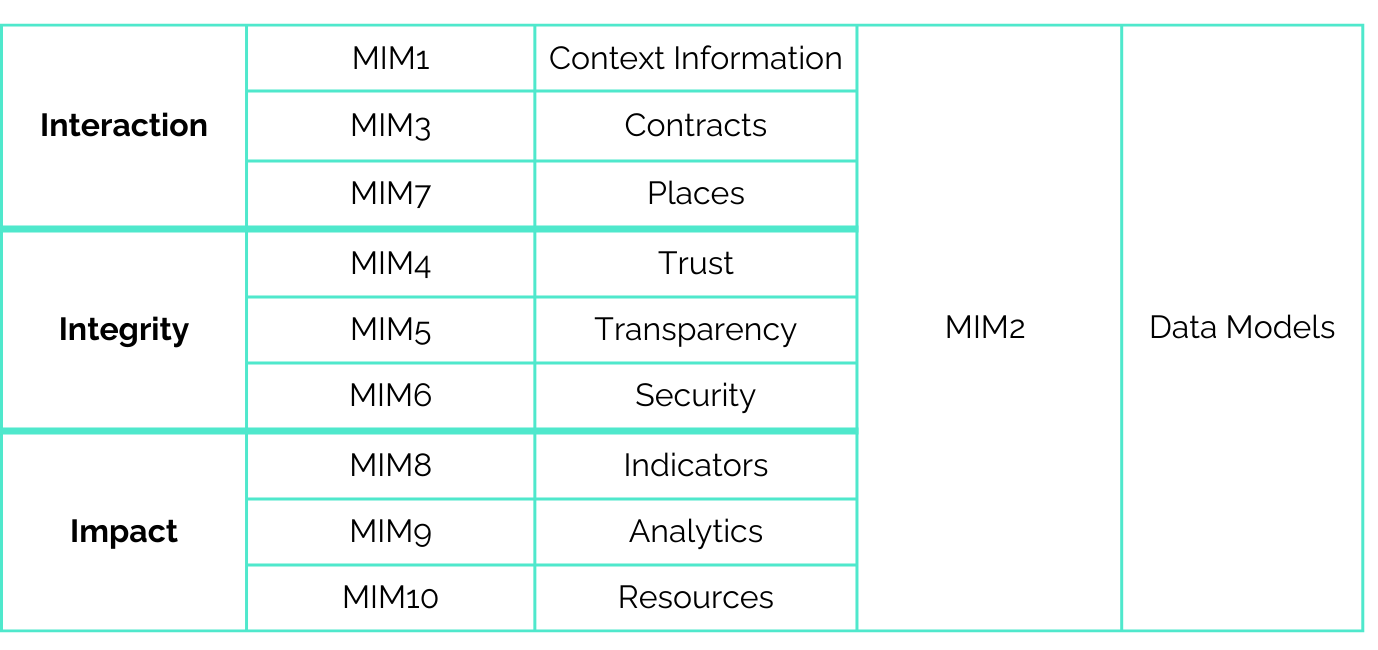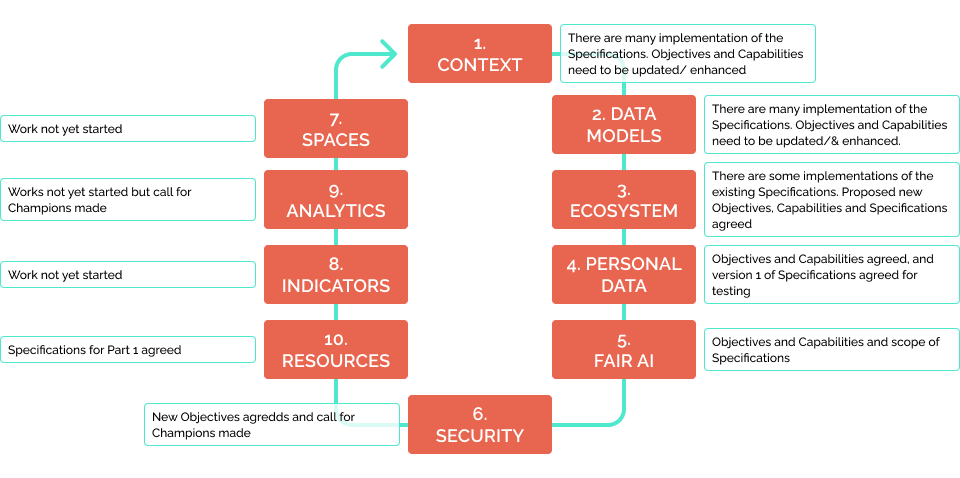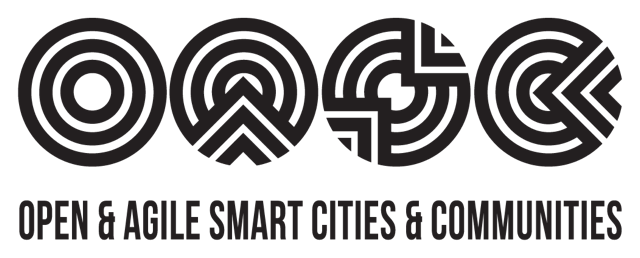MIMS
Minimal Interoperability Mechanisms – MIMs – explained
Context
If we lived in an ideal world, we could all use the same services and AI systems and adhere to consistent principles for collecting, storing, and processing data because there was no vendor-lock in, and people/communities would have the same resources, skills, capacities, requirements and needs. But our world is rich in diversity, and as such we all have different requirements and habits for handling information. This presents the challenge known as interoperability, which refers to the ability of different systems to communicate and share data effectively.
The minimal interoperability mechanisms (MIMs) emerged to enable a minimal but sufficient level of interoperability for data, systems, and services specifically in the context of smart city solutions. By facilitating this minimal yet essential level of interoperability, MIMs pave the way for the development of a cohesive global market and collaboration centered around solutions, services, and data.
Use Case
The MIMs are vendor-neutral and technology-agnostic, meaning that anybody can use them and integrate them in existing systems and offerings. The MIMs predominantly address three types of scenarios:
1. You want to procure different technologies while maintaining the same capabilities and data
For example, an administration may want to procure a new Customer Relationship Management (CRM) tool. Currently they are using SalesForce, but in order to integrate better with their Office suite, they want to move to Microsoft Dynamics CRM. In order maintain all historic data , they would need to be able to access that data and import it into Dynamics. This may require a lot of transformations on the data coning from SalesForce and mapping it to Microsoft Dynamics. However, if the requirements set out in MIM2, the data models of both systems would be described properly and this work would be reduced to a minimum.
2. You work with a mechanism and want to access/exchange with different mechanisms
For example, a local authority may want to receive notifications whenever the air quality drops below a certain threshold. To this end they need to connect with the National Environment Agency. If this agencies’ ICT infrastructure is based on MIM2, they will ne able to easily subscribe to notifications using a Context Management API.
3. You want to build and use interoperable solutions
Let’s assume a Startup is building a mobility solution. For this they want to access realtime open data from parking providers in different cities. Usually, they would have to implement an integration for each parking provider, and possibly have to set up many meetings with their respective technical teams to discuss formats, access control, etc. However, if these parking providers are in line with MIM1, MIM2 and MIM3, this information should be accessible in a machine-readable way, and the number of integrations would be limited to some common data models.
For information on the new format and to see the latest version of those MIMs being worked on, click here.
MIMs
Each MIM identifies an area where we should strive for interoperable mechanisms. The community has so far defined 10 different MIMs that can fit into 3 overarching categories.
MIMs Plus
While the MIMs strive to enable a global marketplace for data, systems and services, the MIMs Plus provides this for the European market. The Living-in.EU movement and its Technical Working Group is responsible for moving this work forward with the guidance of Open & Agile Smart Cities and Communities to ensure that MIMs and MIMs plus remain in dialogue.
Y.MIM
The format of a MIM is formally standardised by the ITU. This format is called Y.MIM. Hence, each MIM adheres to the same structure. It starts with a clear objective, followed by a number of capabilities linked to requirements that are linked to a list of mechanisms. It is then that the MIM provides interoperability guidance for these mechanisms. To ensure that you are implementing the MIM well, it also provides conformance and compliance testing.
Each MIM identifies an area where we should strive for interoperable mechanisms. The community has so far defined 10 different MIMs that can fit into 3 overarching categories.

MIM2 is an overarching MIM that governs the use of data models and is applicable for each category.
Governance
The development of the MIMs
The MIMs are updated on a yearly basis based on the work of MIM specific working groups. Once all sections (objective, capabilities, requirements etc.) of the MIM have been updated they are put forward for approval to the OASC Council of Cities. If approved, the new version of the MIMs will be made publicly available. The overall development work is steered by the OASC Council of Cities that is advised by the OASC Technology Council.
Working Groups
Each MIM is championed by a public body (city/region/community) that serves as a role model in adopting and developing the MIM. The champions lead this work in MIM specific working groups with the support of OASC facilitators. The working groups invite all Open & Agile Smart Cities and Communities members and strategic partners, and Living-in.EU Technical Working Group members to contribute.
Scaling Digital Solutions with MIMs
MIMs at a glance
State of play of MIMs, June 2023

Currently, the following MIMs have been formally adopted by all OASC members:
OASC MIM1 – Context – Context Information Management
OASC MIM2 – Data Modules – Shared Data Models
OASC MIM3 – Contracts – Ecosystem Transaction Management
OASC MIM4 – Trust – Personal Data Management
OASC MIM5 – Transparency – Fair Artificial Intelligence
OASC MIM7 – Places – Geospatial Information Management
The following additional MIMs have been proposed and accepted as work items:
OASC MIM6 – Security – Security Management
OASC MIM8 – Indicators – Ecosystem Indicator Management
OASC MIM9 – Analytics – Data Analytics Management
OASC MIM10 – Resources – Resource Impact Assessment
